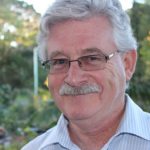The Motivational Speaker Smackdown
Jock Elliott prepares himself backstage before the competition.
Article Written by JOHN BOWE
Picture Credit: Tiffany Brown for The New York Times
Published: September 30, 2011
Jock Elliott paced the events room of Bally’s Hotel in Las Vegas. Sixty-four years old, with a silver mustache and mild features, Elliott flew in a week before from Brisbane, Australia. The jet lag had worn off, but it was 6:10 a.m., and he had had only one cup of coffee — in a paper cup no less. “I hate coffee in paper cups,” he said. “It’s appalling. So uncivilized.”
In two hours, Elliott would try, yet again, to win the World Championship of Public Speaking, sponsored by a group called the Toastmasters International. Elliott, a “Toastie” since 1975, had lost in the finals six times before. His first defeat occurred in 1990, in Dallas, where he spoke about John F. Kennedy. Later, he noted it might have worked better in another city. In 1994, his speech was called “Que Sera.” It began: “When I was just a little boy, I asked my mother, what will I be? Will I be handsome? Will I be rich? Here’s what she said to me. She said no.”
Elliott, who quit his sales job 13 years ago and has been trying to make a living solely as a public speaker ever since, was also a finalist in 2006. In an otherwise strong speech about his pregnant grandmother’s heroic efforts to survive a bush fire in Tasmania, he made the mistake of saying the words “two fat ladies.” “There was a sort of mixed tooth-sucking that passed through the audience,” he said.
This morning, Elliott surveyed the competition as they practiced their routines. Onstage, Scott Pritchard jogged in place, panting with arms extended, imploring 2,000 empty seats in a husky voice, “What do you do” (pause) “when you’re pursuing your dream” (pause, breath) “and you’re faced with adversity?”
Olivia Schofield, four yards away but seemingly unaware of Pritchard, reached for a case covered in black velveteen. She slyly lifted the fabric to reveal a teddy bear. It was Rodrick, the little guy who helped her get over her childhood problem with the letter R. (Her speech is called “Wodwick.”) Looking into the distance above the seats, in a tremulous voice, she asked the imaginary crowd-to-be: “Is there something limiting you? Marking you as a failure?”
Speeches are a serious business for this crowd. Some of the participants were once unable to address strangers. Today most are seeking careers in motivational speaking. And at the championship, they were judged on content, clarity, humor, body language and rhetorical dynamism by Toastmaster luminaries. The prize: just a trophy and a title. No money.
At 8 a.m., the crowd, an assembly of Toastmasters from more than 50 countries, gathered in the events room to watch the competition. At audience level, front row, stage right, a stoplight cycled from green to yellow to red. At Minute 5, it turned green; 6 to 7, yellow. At red, a speaker had 30 seconds to wind down. Schofield (and Rodrick) elicited enormous laughs imitating her R-challenged self at an audition for “Cats” and singing her version of Queen’s “We Will Wock You.” But she went 15 seconds too long and was disqualified.
By the time it was Elliott’s turn, he felt good about his odds of winning. The speech he was about to give, “Just So Lucky,” was a reworking of one he first wrote in 1993. Since then, he has changed it 26 times. While the other speeches relied on props and histrionics, Elliott’s was much quieter. “I was very conscious that the style of it, the physical stillness and vocal quietness, would be at variance with the others, and that would either work for or against me.” However, he said: “The speech was worth doing and the message worth saying. Besides, I’m sick to death of the bloody Barnum and Bailey circus.”
Elliott took his place on the stage, his toes right up against the edge. “If I joined Twitter or Facebook,” he began, “I could have hundreds of brand-new friends. But how many of them would roll out of bed at 3 o’clock in the morning and come to my aid?” Elliott talked at 102 words a minute, allowing for longer than normal pauses for the larger than normal room. He spoke at length about the love he has for his wife, whom he met at Toastmasters and married at age 42.
He then asked the members of the audience to consider their own loved ones. “Feel their warmth, feel their friendship, feel the ties that bind. And if we treasure these ties” — his light went red — “we’ll have all the luck we’ll ever need.” (Pause.) “And we won’t need Facebook!”
The applause was followed, per contest rules, by several moments of silence for the judges to complete their tallies. Elliott had won and was called up to make an acceptance speech. “No problem,” he said. “I’d only been playing with it in my head for about 40 years.” Afterward, he headed back to the greenroom for a moment alone. “I had a little cry,” he said. “I just thought: What a blessed relief. I’ve not been barking up the wrong tree.”
A version of this article appeared in print on October 2, 2011, on page MM18 of the Sunday Magazine with the headline: The Motivational-Speaker Smackdown.


